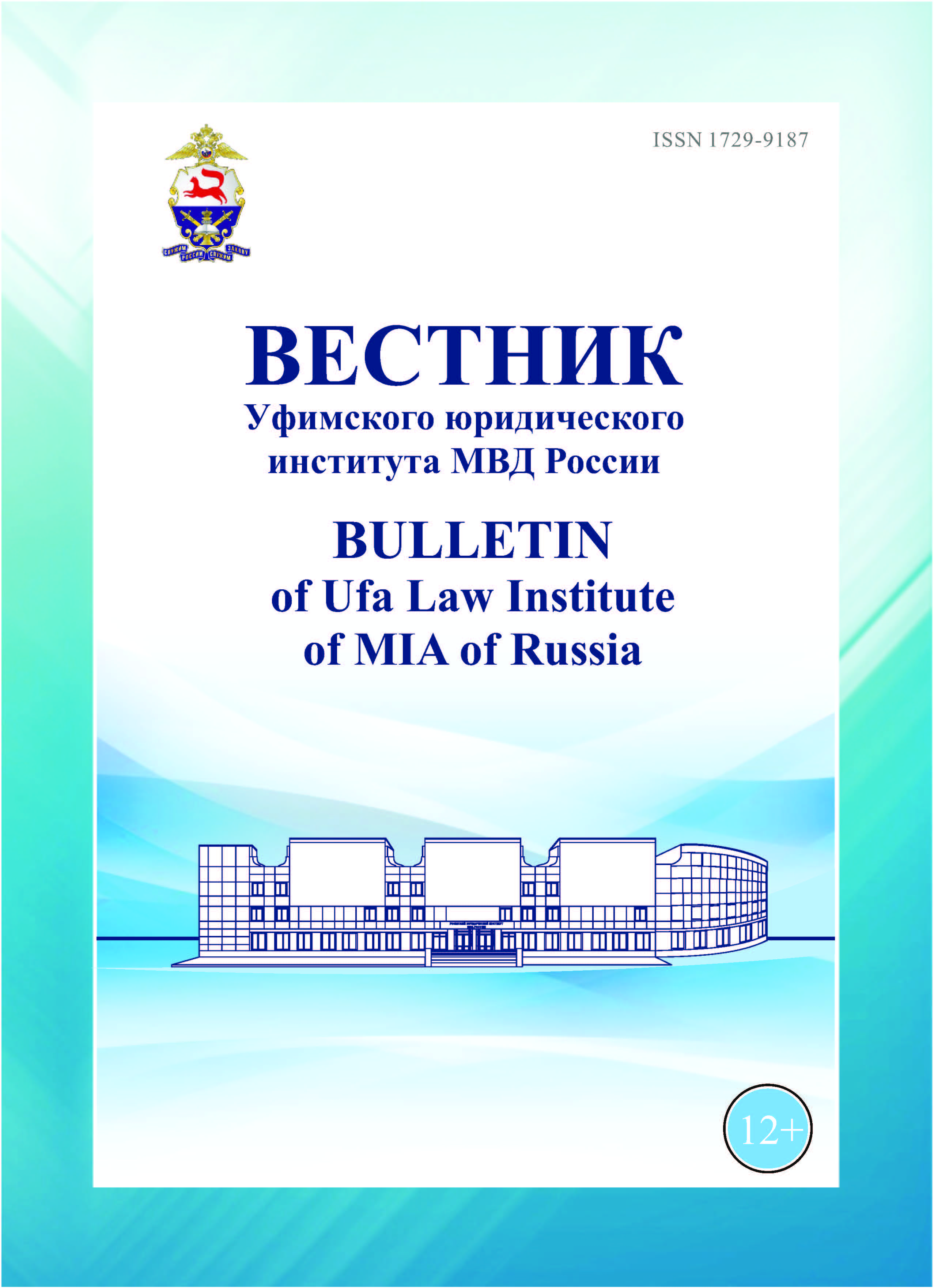from 01.01.2022 until now
Moscow, Moscow, Russian Federation
UDC 340
In the modern context, when discussing the limitations of public power, special attention is paid to mechanisms that go beyond strictly formalized legal norms. The central place among them is occupied by non-legal forms of regulation, which represent a wide arsenal of tools based on moral norms, public expectations, cultural practices, traditions, ideological attitudes and principles. This set of mechanisms plays a significant role in shaping the boundaries of government structures, complementing and sometimes replacing legal means of control and restraint of power. The appeal to non-legal forms of restriction of power is not only of theoretical interest, but also has practical significance, since it allows us to identify and analyze ways of normative influence on state structures outside the strictly legal field, to identify their effectiveness and limits of applicability. This approach opens up new perspectives for studying the mechanisms of restraint of power, offering an alternative view of the processes of cooperation and conflict between the state and society.
restrictions, public authority, legal means, legal impact, illegal forms of restriction
1. Milusheva T. V. Limits and Restrictions of State Power (theoretical and legal study): dis. ... doctor of law. Saratov, 2011. 433 p. (In Russ.)
2. Filipova I. S. Concepts of Limitation of State Power: theoretical and legal study: dis. ... candidate of law. Novgorod, 2006. 211 p. (In Russ.)
3. Reshetov S. Yu. Legal regulation and implementation of law // Bulletin of Perm University. Legal sciences. 2015. No. 3 (29). P. 24–29. (In Russ.)
4. Sidoryuk A. Yu. Legal restrictions as a way of influencing public authority // The Russian state and the challenges of the 21st century. Rights and responsibilities of the individual: in search of civil harmony: collection of articles from the International Conference for the 30th anniversary of the Constitution of the Russian Federation and the 40th anniversary of the Department of State and Legal Disciplines. Moscow: Academy of Management of the Ministry of Internal Affairs of Russia, 2023. P. 322–325. (In Russ.)
5. Humboldt W. Ideas for the Experience Defining the Boundaries of State Activity // Language and Philosophy of Culture. Moscow: Progress, 1985. 451 p. (In Russ.)
6. Vitchenko A. M. The Concept of the Boundaries of the Activity of a Socialist State // Questions of the Theory of State and Law. Saratov: Saratov University, 1988. P. 3–15. (In Russ.)
7. Pozharsky D. V. The State as an Object of Legal Education // Altai Law Bulletin. 2016. No. 4 (16). P. 38–41. (In Russ.)
8. Samigullin V. K. On the Concept of Law // Legal Policy and Legal Life: Academic and University Legal Scientific Journal. 2002. No. 1 (6). P. 26–30. (In Russ.)
9. Velento L. I. Limits of state activity (theoretical and legal analysis of external forms of restriction). Grodno: Grodno State University, 2001. 109 p. (In Russ.)
10. Gadzhiev G. A. Constitutional principles of market economy (Development of the foundations of civil law in decisions of the Constitutional Court of the Russian Federation). Moscow, 2002. P. 154–160. (In Russ.)
11. Milusheva T. V. Potential of civil society in establishing the boundaries of state power // Responsibility of authorities to civil society: mechanisms of control and interaction. Saratov, 2014. P. 136–144. (In Russ.)
12. Lazarev V. V. Regulatory role of legislation in the process of perestroika of Soviet society // Soviet state and law. 1987. No. 12. P. 13–21. (In Russ.)
13. Tsybulevskaya O. I. Moral criteria for limiting the rights and freedoms of the individual // Bulletin of the Russian State University for the Humanities. Series: Economy. Management. Law. 2009. No. 11. P. 62–76. (In Russ.)
14. Tsybulevskaya O. I. The role of ethical codes in the moral recovery of Russian society // Modern legal science and law enforcement (3rd Saratov legal readings): collection of abstracts of reports (based on the materials of the All-Russian scientific and practical conference). Saratov, 2010. P. 99–101. (In Russ.)
15. Milusheva T. V. Social justice as a moral and legal basis for the activities of public authorities // Leningrad Law Journal. 2010. No. 1 (19). P. 71–78. (In Russ.)
16. Tsybulevskaya O. I. State power: moral dimension // Legal culture. 2014. No. 2 (17). P. 21–30. (In Russ.)
17. Tsybulevskaya O. I., Milusheva T. V. Moral and legal dimension of the limits of state power // Law and modern states. 2015. No. 6. P. 10–17. (In Russ.)
18. Kolosova N. M. Constitutional responsibility in the Russian Federation: Responsibility of government bodies and other legal entities for violating the constitutional legislation of the Russian Federation. Moscow: Gorodets, 2000. 190 p. (In Russ.)
19. Repyev A. G. Legal culture is an integral element of the right to immunity of a state official // Legal culture. 2011. No. 2. P. 102–105. (In Russ.)
20. Galanov A. S. Constitutional foundations for ensuring the rights of citizens to a favorable environment and ensuring environmental safety // Bulletin of the Volga State Academy of Water Transport. 2013. No. 36. P. 62–68. (In Russ.)
21. Makogon B. V., Kosimova M. V. Control and supervision in the activities of executive bodies of the Russian Federation // International Journal of Humanities and Natural Sciences. 2022. No. 5–3 (68). P. 117–120. (In Russ.)
22. Mordovets A. S. Social and legal mechanism for ensuring human and civil rights / edited by N. I. Matuzov. Saratov: SVSh MVD RF, 1996. 285 p. (In Russ.)
23. Baitin M. I. Rule of law: concept, principles, formation // Bulletin of SGAP. 1995. No. 2. P. 18–31. (In Russ.)









